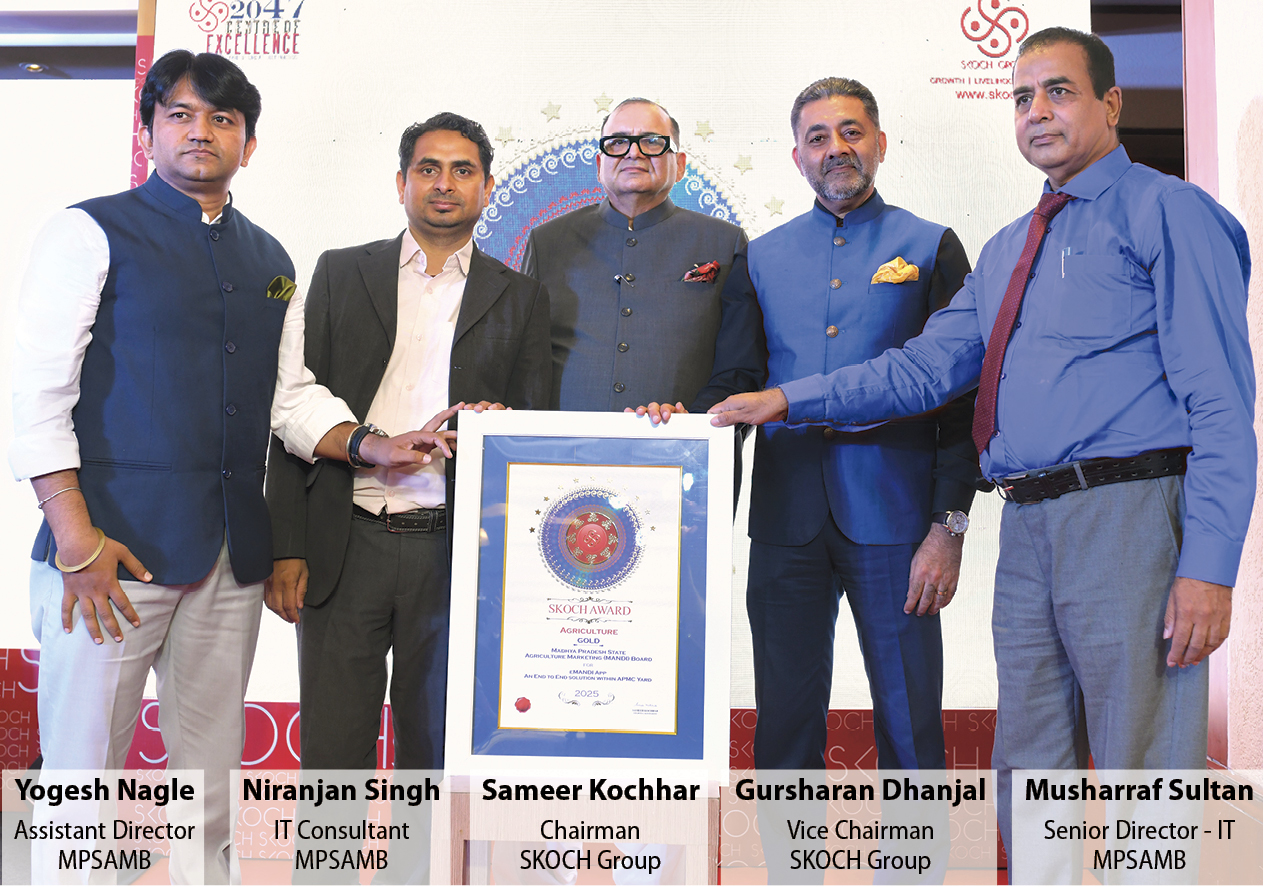That story began to change in 2019, when the MP State Agricultural Marketing Board and NIC MP launched the eMANDI App—a bold step toward digitising every process inside the APMC yard. What once required hours of paperwork could now be done through a mobile screen.

Before the digital dawn, agricultural trade in Madhya Pradesh ran on ledgers, manual receipts and endless queues at the Mandi yards. Farmers travelled long distances with their produce, often spending nights under tarpaulin shelters, waiting for auctions that sometimes didn’t happen. Traders juggled piles of paperwork, while APMC officials struggled to reconcile reports and detect fee evasion. Transparency was thin, payments were delayed and data—if available at all—was unreliable. For small farmers, selling produce meant uncertainty, fatigue and lost income.
That story began to change in 2019, when the MP State Agricultural Marketing Board and NIC MP launched the eMANDI App—a bold step toward digitising every process inside the APMC yard. What once required hours of paperwork could now be done through a mobile screen. Gate passes, auctions, weighing, payments and NOCs—all became digital. Farmers received OTPs confirming each transaction; traders generated electronic receipts; and APMC officials could monitor everything in real time. The result was fewer loopholes, no fee evasion and faster payments. What had been a maze of manual entries turned into an auditable, transparent system where every grain had a digital footprint.
Then came 2021, when the COVID-19 pandemic halted physical trade. But necessity sparked innovation. Within weeks, the same team introduced the Farm Gate App—a lifeline that allowed farmers to sell directly from their homes or fields without visiting the Mandi. Initially trader-led, it soon evolved into a farmer-centric platform with geo-tagged, OTP-verified transactions and full legal backing under the APMC Act. It wasn’t just a digital convenience—it was empowerment at the doorstep.
Together, these twin platforms redefined agricultural marketing in Madhya Pradesh. Farmers now save transport costs, gain better prices and receive payments faster. APMCs operate with transparency, backed by real-time dashboards. Traders benefit from simplified compliance, while administrators can plan using accurate, live data.
The transformation wasn’t instant—there were connectivity challenges, training hurdles and resistance from traditional stakeholders—but perseverance paid off. From dusty ledgers to digital ledgers, from waiting at Mandis to trading from home, Madhya Pradesh has built a seamless ecosystem connecting every step of the agri-value chain.
Commissioned on 30 April 2024, the project has an annual generation potential of 58.1 million units with a capacity utilisation factor of 26.53 percent.
Solid waste management was among the most pressing issues. Years of unsegregated garbage posed health and environmental risks.
Affordable Housing by Private Developers on Private Land Uttarakhand Awas Evam Vikas Parishady
eASE App: Transforming Urban Governance Uttarakhand Housing and Urban Development Authority
"American roads are good not because America..
State Rankings Highlights -: Odisha scaled to number..
In the run-up to the elections, the most..
Step 1: Call for Project Submission Call for..

Inclusion is the first magazine dedicated to exploring issues at the intersection of development agendas and digital, financial and social inclusion. The magazine makes complex policy analyses accessible for a diverse audience of policymakers, administrators, civil society and academicians. Grassroots-focused, outcome-oriented analysis is the cornerstone of the work done at Inclusion.
